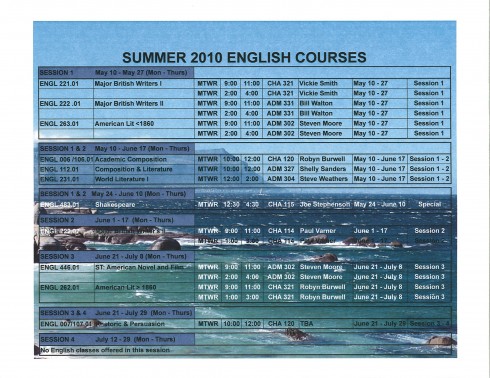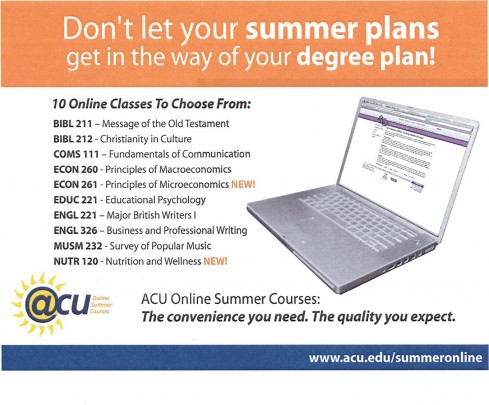Academic Integrity Policy: Policies for Students
Students should use the following guidelines to understand more fully what constitutes academic dishonesty and how ACU will respond to various types of inappropriate academic behavior. While academic dishonesty may take different forms in different fields of study, the situations described below are representative.
Minor Errors Committed Through Ignorance or Carelessness
The Student’s Action
Some instances of inappropriate academic behavior result either from (1) a student’s incomplete grasp of ethical procedures or (2) a student’s failure to follow proper ethical procedures. Such actions may be represented by the following:
- A student quoted a source directly and acknowledged the source both in the text and on the Works Cited page, but failed to place quotation marks around several direct quotations;
- A student borrowed from sources listed on the Works Cited page, but failed to supply parenthetical or other documentation for several sentences;In most cases a student handled parenthetical or other documentation correctly and listed most sources on the Works Cited page, but failed to document and cite a source from which a few ideas/sentences were taken;
- A student engaging in legitimate collaborative learning with another student or a tutor nevertheless relied too heavily and too often upon the exact phrasing employed by the other person.
Responses by the Teacher
In such cases the teacher may judge that the academic misbehavior is the result either of ignorance or carelessness, and may thus treat the error like any other mistake. The teacher is therefore obliged to lower the grade on the assignment in proportion to the incidence of the error. The student should be aware that his/her ignorance or carelessness regarding proper ethical procedure in writing may be so pervasive as to warrant an F or lower on the assignment. As with any other mistake, the fact that it was committed out of ignorance or carelessness does not remove the penalty.
Major Misattribution or Misrepresentation
The Student’s Action
In some cases clear and compelling evidence exists that a student has extensively plagiarized or committed extended acts of academic dishonesty. Such deceptions are so self-evident that they cannot be attributed simply to carelessness, ignorance, or misunderstanding. The following scenarios are examples of such academic misconduct:
- In his/her paper a student borrowed extended sections (whole sentences and phrases) or an entire essay from a published or unpublished source without acknowledging any source in the text, in a note, or on the Works Cited page;
- A student borrowed, purchased, stole, or otherwise obtained a paper from another individual or company and presented it as his/her own;
- A student stole a copy of a test or assignment, with the purpose either of securing unfair advantage or of sharing the test/assignment with others so they might secure unfair advantage;
- A student gave or sold a paper to another student in full knowledge that the second student intended to submit the paper as his/her own work;
- A student, without the teacher’s permission, used information from notes, textbooks, or fellow students during an examination or an in-class assignment.
Responses by the Teacher and Appropriate Administrators
In such cases, after conferring with two other teachers to determine that the evidence is clear and compelling, the teacher will give the student a zero on the assignment. A zero on a major assignment may be sufficient to cause the student to fail the course.
This incident will be reported to appropriate university officials. If there are other incidents of dishonesty, including incidents other than academic dishonesty, the student may face additional penalties.





 INSTRUCTIONS ON HOW TO PRINT A DEGREE EVALUATION
INSTRUCTIONS ON HOW TO PRINT A DEGREE EVALUATION Are You A Student in Financial Need?
Are You A Student in Financial Need?

